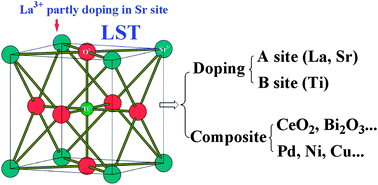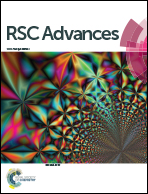Progress in La-doped SrTiO3 (LST)-based anode materials for solid oxide fuel cells
Abstract
Solid oxide fuel cells (SOFCs) have appeared as a promising technology for a wide variety of potential commercial applications to lessen the urgency of energy shortage and environmental pollution associated with using conventional fossil fuels. Among the worldwide SOFCs research activities, the progress of SOFCs fed with hydrocarbon fuels that contain trace amount of H2S is one of the most important research directions. Thereby, it becomes crucial to design novel electrode materials with enhanced catalytic activity, stability and tolerances to carbon deposition and sulfur poisoning. La-substituted SrTiO3 (LST) based perovskite anodes have been widely investigated because of their high electronic conductivity in reducing atmospheres, excellent dimensional and chemical stability upon redox cycling and outstanding sulfur and coking tolerances. In this review paper, we will describe the development of LST-based anode materials for SOFCs in recent years. The synthesis, structure and fuel cell performance of the doped LST and LST-based composite anode materials are summarized in detail. The mechanism of H2S-induced enhancement effect for electrochemical reactions on the LST-based anode materials is explored. The challenges related to the future developments of LST-based anode materials for SOFCs are also discussed.


 Please wait while we load your content...
Please wait while we load your content...